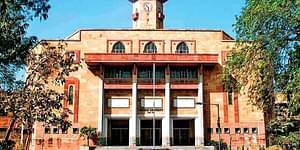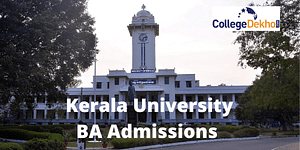PGD in Rural Development
About PGD in Rural Development
The Post Graduate Diploma in Rural Development (PRDRD) is a one-year training program that provides learners with the skills they need to become professionals in the field of rural development. Rural Development covers all aspects of know-how and research in the program. Students will gain an understanding of how strategies for the development and management of rural areas and their implementation are planned and executed in the course. There is no better course for those who are interested in working in Rural Development Cooperatives and Development Organizations.
An approximate tuition fee of 1.6 lakhs for the general category and 1.5 lakhs for SC/ST students is charged for a Post Graduate Diploma in Rural Development. These courses prepare students to work well for local, national, and international cooperatives, non-profit organizations, development agencies, and funding agencies.
This program is recognized by the Association of Indian Universities (AIU) as equivalent to the Master's degree in Rural Management and is approved by the All-India Council for Technical Education (AICTE).
With the Post Graduate Diploma in Rural Development, students learn about the different areas of rural development that require assistance so they can formulate and evaluate better ways to function in the rural areas and provide higher levels of comfort to the inhabitants of those areas.
It aims to impart knowledge on technical skills required for managerial support and anticipating rural progress.
Additionally, PRDRD takes into account topics like socio-economics, governance, project planning and management, financial management. Students enrolled in the Post Graduate Diploma program in Rural Development learn how to develop in-house rural organizations and enterprises by acquiring funds.
PGD in Rural Development Highlights
The course highlights of PGD in Rural Development are given below.
Course Level |
Postgraduation Diploma |
|---|---|
|
Full Form |
Post Graduate Diploma in Rural Development (PRDRD) |
|
Duration |
1 year |
|
Examination Type |
Annual |
|
Eligibility |
For candidates, the basic minimum eligibility criteria are to hold a bachelor's degree securing at least 50% marks from a recognized board or an institution. |
|
Admission Process |
|
|
Annual Course Fee |
INR 2400 – INR 1.5 Lakhs |
|
Average Salary |
INR 1 – INR 8 LPA |
|
Top Recruiting Companies |
National Dairy Development Board (NDDB), Bihar Rural Livelihoods, Promotion Society – JEEVIKA, BAIF Development Research Foundation, Vedanta CSR, ITC Limited Agri-Business Division, Godrej Agrovet Limited, Gujarat Cooperative Milk Marketing Federation, Kaira District Co-operative, Milk Producer`s Union Ltd (AMUL), etc. |
|
Job Profiles |
Sales/Business Development Manager, Rural Development Officer, Purchase/Vendor Development Manager, Business Development Executive, Sales Officer, National Sales Development Manager. |
Table of Contents
PGD in Rural Development Eligibility Criteria
Candidates who wish to pursue PGD in Rural Development must fulfill the mentioned eligibility criteria to get through the admission process.
- Candidates must have secured a bachelor's degree with a minimum mark of 50% for the general category and 45% for the reserved category from a recognized university.
- Candidates can have a bachelor’s degree in any discipline.
- If the college or university conducts an entrance examination for PGD, then it is mandatory for the candidates to sit for that particular entrance exam to procure admission to the college.
PGD in Rural Development Admission Process
PGD in Rural Development admissions is done both on the basis of entrance examination and through merit list.
- Admission through Merit List: The colleges/ universities consider the marks scored by the applicants in the last qualifying examination as the primary criteria.
- Admission through Entrance Exam: Several colleges/universities conduct an entrance exam for admission into PGD in Rural Development diploma course. The admissions are provided based on the entrance test scores scored by the applicants.
Entrance Exam for PGD in Rural Development
Many institutions and colleges offer diploma courses in PGD in Rural Development based on the results of their entrance exams. The entrance examination criteria are set by colleges and institutes based on their requirements and the score secured in the following entrance plays a vital role in the admission process. PGD in Rural Development diploma courses have the following entrance exams:
- Common Admission Test (CAT)
- Xavier Aptitude Test (XAT)
- Management Aptitude Test (MAT)
- Institute of Rural Management Anand (IRMA)
- Narsee Monjee Institute for Management Studies (NMIMS)
- Symbiosis National Aptitude Test (SNAP)
- ICFAI Business School Aptitude Test (IBSAT)
- Common Management Admission Test (CMAT)
- Maharashtra Common Entrance Test (MH-CET)
- Karnataka Management Aptitude Test (KMAT)
PGD in Rural Development Syllabus
The following is an overview of the Post Graduate Diploma (PGD) syllabus in Rural Development.
Subject |
Topics |
|---|---|
|
Rural Planning & Development |
Concepts, Principles, and Approaches of Rural Planning & Development. Development concept: Indicators of development; Conceptual framework, Strategies. Policies and programs of Indian rural development. Planning techniques: Details on how to plan on a district and block-by-block scale. Planning an area: Definition, purpose, Area development plans. |
|
Panchayati Raj & Rural Administration |
Structure of Administration: the structure of bureaucracy; Panchayati Raj Institutions and Voluntary Agencies: The role of government and non-governmental organizations for rural development; Extension Services; and Emergence and Growth of Panchayati Raj Institutions in India. In this chapter, we examine the people and Panchayati raj; the financial structure of panchayat raj institutions; devolution of finance and power (11th Schedule); generation and mobilization of rural revenues; interface in the panchayat system; relevance of interface to the sustainable development of the state; interfaces between panchayats and the state. |
|
Natural Resources Development & Management |
Natural resource: Inexhaustible natural resources - atmosphere and water in its cycle; Replaceable and maintainable natural resources - water in its place, soil, land in its spatial sense, forest, grazing and other cover plants, wild animal life, human power, body, and spirit. Minerals and land in their natural state are irreplaceable natural resources. Guidelines and practices for evaluating, assessing, utilizing, and conserving natural resources. |
|
Rural Marketing & Management |
Market functionaries: Agriculture and non-agricultural products. Types of agricultural and non-agricultural products. Problems of marketing. Role of co-operative agencies in agriculture and non-agricultural marketing. |
|
Rural Energy Planning |
Conventional and unconventional sources of energy - wind, biogas, solar; Energy audits: Energy conversion and conservation programs, aspects of energy accounting, energy accounting indices, energy budgeting. Energy supply forecasting and analysis. |
|
Transfer and Management of Technological Innovations |
Technology Transfer - Definition, Transfer of Technology and Appropriate Technology, different models, systems involved, and factors involved in Technology Transfer. How technologies are created, how technologies are transferred. Technological barriers, characteristics of barriers to innovation, stimuli for innovation. Dissemination of technological innovations - innovation, communication, social systems, and time Dissemination of cultural innovations - norms, the role of modernity, and the role of tradition. Stages of adoption – process overview. |
|
Rural Community Facilities & Services |
Services and Facilities for Community Development: Water, Sanitation, Electricity; Providers: Government, Non-Governmental Organizations, Philanthropic Organizations; Various Programs under Community Development; Various Models for offering Sanitation and Water in India and abroad. The transport system in rural areas - modes of transport - rural economy. Healthcare systems in rural areas. |
|
Development of Tribal Communities |
Social Status of Tribes: Historical perspectives, demography, tribal organization, exploitation, land alienation, marketing; problems include unemployment, linguistic differences, caste barriers, and cultural transformation for women. Legislation: statutory provisions, constitutional amendments; Role of Government Agencies: Government, voluntary and non-governmental organizations; Recommendations of various committees. |
|
Crop, Soil & Water Management |
Understanding crop ecosystems and crop classification; Crop production strategies in tropical regions, agroclimatic regions and crop cultivation; modern techniques of raising field crops; understanding cropping systems, chemical, physical, physicochemical systems and environmental factors. Plant-soil-water relationships; Water requirement of the crop; Irrigation & drainage in crop production; Land capability evaluation & classification, management of arid, semiarid & humid subtropics & tropics; Problem of reclamation and wastelands; Physical management of the soil for maximizing agricultural production; Soil water system & water resource management; Plant-soil-water relationships; Water requirement of the crop. |
|
Livelihood Issues and Problems |
Micro and Macro transition of Rural Livelihood; different perspectives. Livelihood Security’s Risks and Opportunities; Livelihood development’s Gender Issues, Livelihood System in Transition Research and Practice. |
|
Women and Child Development, Health, Nutrition; Gender and Society |
Ideas, Social Hierarchy; Human Development and Gender Development: Human Development Indices; Status of Women in India: Historical viewpoint; Justice and Women Empowerment: (a) International Scenario - Grass-Root Women's Movements; Different International developments in orientation equity; Empowerment: Parameters, Women and Health: Health Status of Women; Nutritional Anemia; Child Development: Status, schooling, wellbeing, Governmental Programs for kids advancement. |
|
Social Security-Problems, Policies and Program |
Idea and meaning of Social Security, Economy and Social Security, Role of Govts. Reasons of Govt's. inclusion in giving Social Security, Components of Social Security, encounters and challenges of Different States. |
|
Networking and Communication |
Prologue to networks and Layered Architecture. Information Communication Concepts. Transmission Media and Topology, Noise. Encoding and mistake recognition. Coordinated and nonconcurrent Transmission, Multiplexing and exchanging. Mistake Control and Flow Control Techniques. Medium Access Control. IEEE standard for LANs. Rapid LANs. Steering Algorithms. Blockage Control Techniques. WAN, Frame Relay, ATM Interworking. IP convention. Network Management and Security. |
Top Institutes PGD in Rural Development in India
List of the top institutes in India offering PGD in Rural Development diploma courses along with their average annual course fees is tabulated below:
Institutes/Colleges |
Average Course Fee |
|---|---|
|
National Institute of Rural Development, NIRD, Hyderabad |
INR 10,000 – INR 2.6 Lakhs |
|
Centre for Distance Education University of Hyderabad, CDEUH, Hyderabad |
INR 40,000 |
|
INR 1.6 Lakhs |
|
|
Mahatma Gandhi Antarrashtriya Hindi Vishwavidyalaya, MGAHV, Wardha |
INR 72,50 |
|
INR 90,000 – INR 1.8 Lakhs |
|
|
INR 32,380 |
PGD in Rural Development Jobs and Top Recruiters
After successfully completing PGD in Rural Development, Candidates can get decent job offers from top companies. Nowadays PGD in Rural Development is becoming one of the most in-demand courses. Some of the top recruiters for PGD in Rural Development diploma courses are listed below:
- National Dairy Development Board (NDDB)
- Bihar Rural Livelihoods Promotion Society – JEEVIKA
- BAIF Development Research Foundation
- Vedanta CSR
- ITC Limited Agri-Business Division
- Godrej Agrovet Limited
- Gujarat Cooperative Milk Marketing Federation
- Kaira District Co-operative Milk Producer`s Union Ltd. (AMUL)
- Muthoot Fincorp
- IndusInd Bank Limited
- Mapro Foods
- Mother Dairy Fruit & Vegetable (P) Ltd
- ADM Agro Industries
- Supermarket Grocery Supplied Pvt. Ltd. (BigBasket.com)
- Cargill
PGD in Rural Development Top Job Profiles
There are several interesting job profiles associated with taking PGD in Rural Development diploma course. Below are a few of the job profiles one can expect after completing this course:
- Sales/Business Development Manager
- Rural Development Officer
- Purchase/Vendor Development Manager
- Business Development Executive
- Sales Officer
- National Sales Development Manager
PGD in Rural Development Salary
After completing of PGD in Rural Development diploma course from prestigious colleges, the graduates can make starting salaries ranging from INR 1,00,000 – INR 8,00,000 per month.
Job Profile |
Salary (INR in Lakhs) |
|---|---|
|
Area Executive |
INR 4 – INR 5 LPA |
|
Marketing and Sales Manager |
INR 4 – INR 5 LPA |
|
Rural Managers |
INR 1 – INR 3 LPA |
|
Senior Program Officer |
INR 4 – INR 5 LPA |
|
Research Head |
INR 7 – INR 8 LPA |
Related Questions
Popular Courses
- Courses
- PGD in Rural Development


















